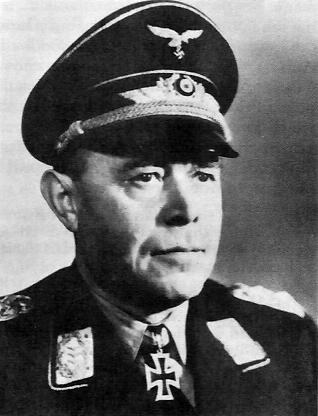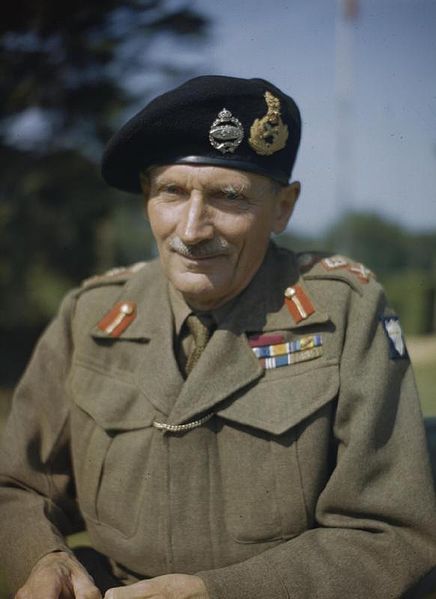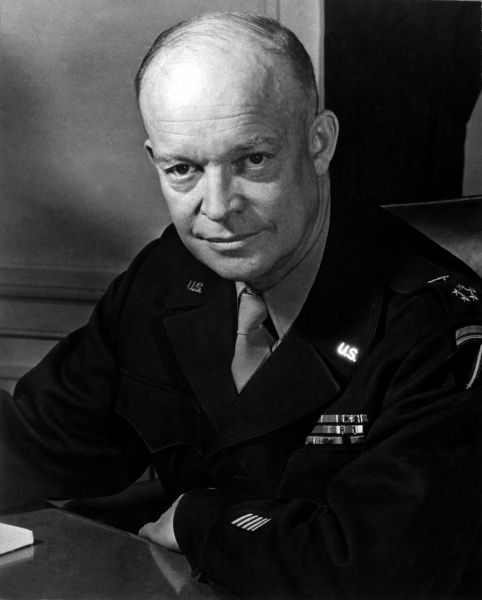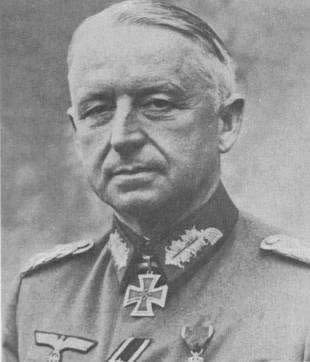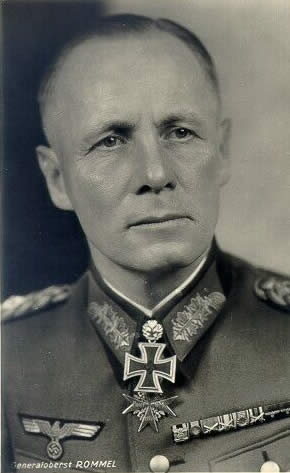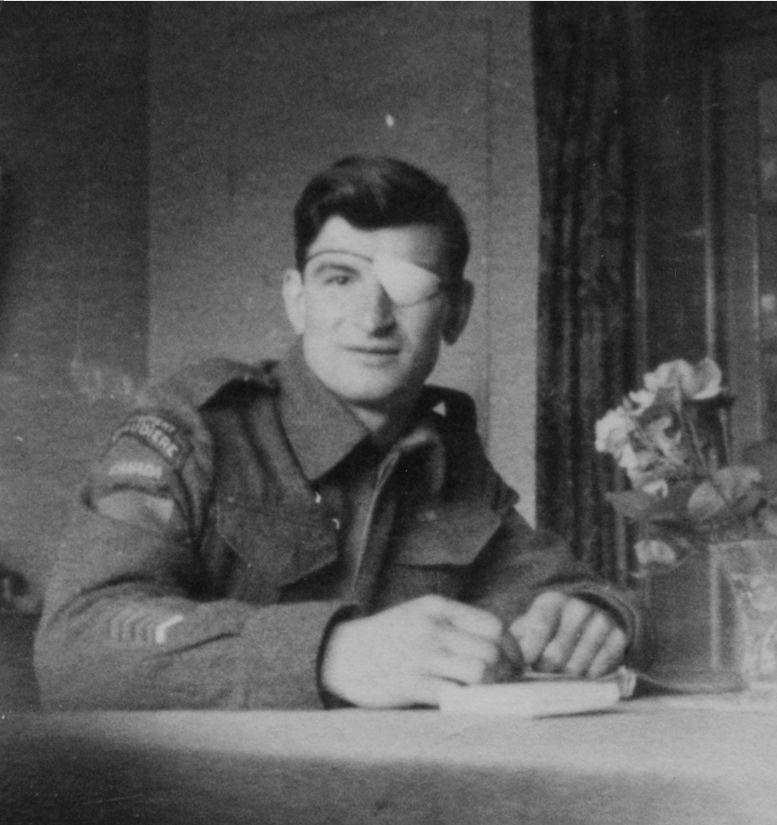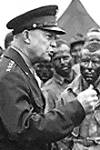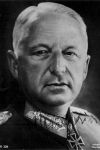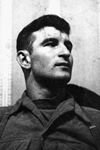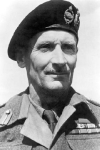The Battle Fronts
By Maj.-Gen. Sir Charles Gwynn, K.C.B., D.S.O.
The War Illustrated, Volume 8, No. 185, Page 131, July 21, 1944.
The end of June found the Germans in by far the most serious strategical situation they had yet to face. The fall of Cherbourg meant the definite establishment of a western front, and the rapid collapse of their defensive position in White Russia was a disaster which knocked out the king pin of their eastern front. Both were strategic disasters of the first order and both revealed the immense offensive power the Allies had developed. The situation in Italy had also deteriorated so greatly that it had been necessary to send reserves to the German general Kesselring which could ill be spared from France and yet were insufficient to give him much hope of stabilizing his front. If Cherbourg had stood a prolonged siege, even if it had held out for a month or six weeks, it would have gone far to reduce the value of the footing the Allies had gained in Normandy. The footing could undoubtedly have been firmly held and possibly have been considerably extended, but no far-reaching offensive operations could have been undertaken from it until an adequate port was secured.
It is in fact astonishing that it was practicable, in spite of desperately unfavourable weather, to disembark reinforcements and supplies on the beaches sufficient to maintain the offensive operations which led to the capture of the fortress and punned down Rommel's reserves. It must be realized, however, that a general offensive and an advance to more distant objectives would have entailed immense and constantly increasing demands which a beach organization could not have met. Only the most perfect organization could have met requirements during the first three weeks, and we have yet to learn what the effort cost in loss of stores and landing craft from weather alone, though we know it must have been high.
The final assault on Cherbourg was delivered with immense dash and determination; coupled with the tactical skill shown in outflanking and by-passing the enemy's strong points, it is evidence of the very high standard of training that has been reached by American troops. The success of the operation, however, depended largely on whether Rommel could be prevented from intervening with his armoured reserves. That he was unable to make any counter-attack from outside the ring of encirclement was entirely due to the vigorous offensive attitude of the British and Canadian troops in the Caen-Tilly area which pinned all his available reserves to that sector of his front. That offensive action must, however, have made heavy demands on the reserves of munitions and material which Montgomery had been able to accumulate – demands which might rapidly have increased if Rommel had been able to launch an attack on a large scale.
Cherbourg was Intended to Withstand a Long Siege
I think it will therefore be recognized that under the conditions of weather which made the replenishment of munitions, supplies and full air co-operation uncertain, Generals Eisenhower and Montgomery made a notably bold decision when they refused to be deterred from pursuing their offensive policy. Less determined leaders might well have been tempted to adopt a defensive attitude until conditions were more favourable, and thus have lost the opportunity of exploiting the initial success of the landing. That the Germans fully realized the strategic importance of denying Cherbourg to the Allies and that they had taken every precaution to enable it to stand a long siege cannot be questioned. The mere fact that they entrusted its defence to somewhat inferior troops is proof of their reliance on its impregnability.
The collapse of the front in White Russia may have more immediately disastrous results. The consequences of the loss of Cherbourg may not be fully felt for some time, but in Russia the whole structure of the front is crumbling. I admit that I had thought, after the Russian successes of the winter which enabled them to threaten the positions at Vitebsk and on the upper Dnieper from both flanks, that the Germans were only clinging to that line in order to hold the Red Army at a distance and to blunt the edge of any offensive delivered against it. The position was obviously strong and very large fores would be needed to capture it, which seemed to make it probable that the Russians would select weaker sections of the front for their initial offensive. If, however, a major offensive developed here I believed that the Germans would resort to elastic delaying defence, and carry out a well-planned coordinated withdrawal to a shorter front.
In the light of events it would seem that the Germans were over-confident in the strength of the position, and, believing that the main Russian offensive would come on Marshal Zhukov's front towards Lvov, were surprised by the weight of the offensive north of the Pripet and the time of its delivery. Possibly they considered that the preparations for the offensive, which they must have observed, only indicated a threat designed to draw their reserves northwards. This would explain why they seem to have left the bulk of their Panzer Divisions with Von Manstein and to have been weak in the air when the blow fell. Here again they may have used too high a proportion of inferior divisions in what they assumed to be impregnable defences; otherwise it is difficult to understand the rapidity with which the Russian victory was achieved.
When the danger was fully realized the lack of good and direct lateral communications must have been felt, making it impossible to rush up reserves from other sectors in time to attempt to retrieve the situation. Nor can it have been possible to dispute seriously the air superiority the Russians had established, for many of the German airfields in the combat zone had been overrun or put out of action at an early stage. Once air superiority, or anything approaching equality, is lost it is difficult to recover; and almost impossible when the army which relies on it is in retreat.
Key-Point Encirclement Plan Gain Soviet Victories
Although the Germans must have envisaged the possibility of being compelled to withdraw from Vitebsk and the upper Dnieper at some stage, it is quite clear that they have not voluntarily withdrawn on a preconceived plan and that they have suffered an unexpected and crushing disaster. The Russian plan of encircling each of the key-points of the front while combining it with a wider pincer attack towards Minsk, which might have provided a rallying pivot in rear, was well designed to break up attempts to carry out a well co-ordinated last minute withdrawal.
The amazing capture of Minsk a few hours after the Germans had broadcast that it must and would be held at all costs came as a surprise even to those who realized the state of demoralization of Busch's troops, of which the capture and killing of so many senior generals is convincing proof. The city was apparently taken without severe fighting, in spite of the arrival of fresh reinforcements, and its abandonment was evidently due to a panic decision – for although it was bound to fall in due course, the Russians' outflanking thrust could hardly have been strong enough to effect immediate encirclement.
We can only conclude that the Russians have again shown an amazing ability to break through the strongest defences, and what is even more surprising, the Germans have again signally failed in defence of much stronger positions than the Russians have successfully held on other occasions. Comparing the defence of Leningrad, Moscow and Stalingrad with the rapid failure of the German defence on the Don, at Orel, in the Crimea and now at Cherbourg and Vitebsk, one wonders if there is something radically wrong with German tactical theories. I suspect that when it comes to the attack or defence of really strongly fortified positions the Germans pay the penalty for overreliance on armour to the neglect of developing the full power of artillery, to which both in attack and defence the Russians have owed their successes. Armour is, of course, of immense value in mobile operations and as a co-operative weapon, but infantry and artillery are still the dominant arms when armies are locked in close combat.
Previous and next article from The Battle Fronts
The Battle Fronts
It is high time to stop using the term Second Front. It has long ceased to be accurate, though it conveniently defined out strategic aims. Now that those aims have taken concrete shape we should, I
Index
Previous article
Editor's Postscript
Like all celebrated military geniuses, Napoleon made some colossal mistakes. But he had so much practice in war and thought about it so constantly that he arrived very often at sound conclusions, ev
Next article
The War at Sea
Finnish insistence on fighting to the last ditch for the benefit of Germany must inevitably affect the naval situation in the Baltic. Already the enemy, in accordance with the pact made by Ribbentrop


